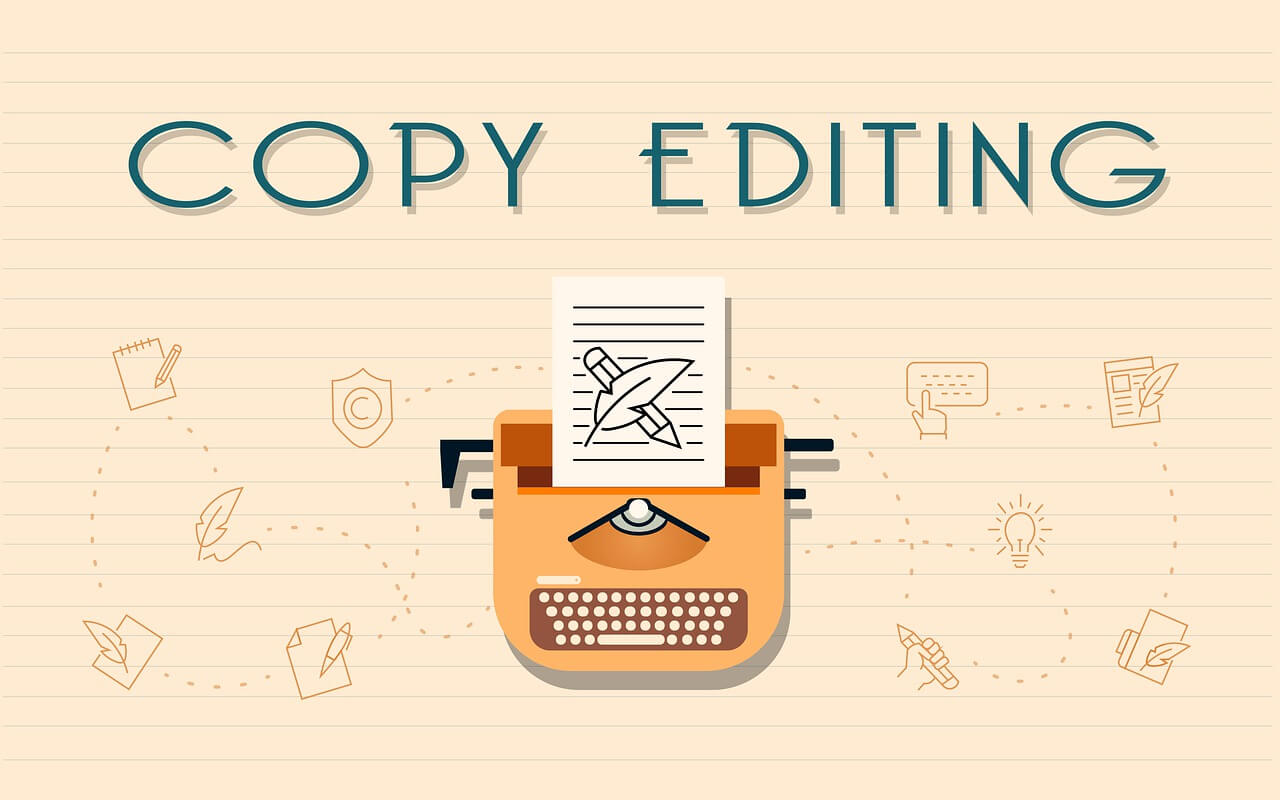Journalism is all about finding great stories that have the potential to surprise your readers and also shock. It’s a career that requires grit, a commitment towards finding the truth and a command over language.
Journalists exude a confident persona, a control over the situation and does all of this without inviting too much attention towards themselves. Some of them become famous journalists while others get pushed into back-end writing rooms covering unsensational news.
Is there a true formula of great journalism that helps journalists stand out from the rest and do great in their career? While there is never a short cut to these, we made a list of 10 secrets for good journalism.
1. Good Writing

Image Credit: Click Here
You can either write an average news report, or a piece that keeps the readers enthralled and occupied. Writing news can be very boring because it is a collection of facts and information, but good writing skills can make all the difference in journalistic writing.
- In order to write well, you also need to get into the habit of reading a lot. Even if you don’t naturally have a talent for storytelling, reading often can help you get better at it.
- Be very strict about grammatical errors, spelling mistakes and accurate usage of words.
- Improve your vocabulary – you’re often limited by word count for news reports, so knowing that one right word instead of four can really help you write a concise report that is to the point.
2. Curiosity

Image Credit: Click Here
The 5 W’s of Investigative Journalism – Who, What, Where, Why, When – along with “How? Who Cares? So What?” makes a curious and answer-seeking journalist. And it is often this curiosity that helps journalists come across sensational news topics.
- Read everything you come across – this helps you stay in the loop of current event and happenings. Both print media and digital media are equally important for this.
- Being aware of random facts and information can add to your background knowledge. You can save up on a lot of time on last-minute reading when you have to go and cover a story.
- Being a curious person also builds a habit of having knowledge of a wide variety of resources that can help you get access to the information you’re looking for. This can be extremely useful when you’re writing a story and need to look up facts.
- Curiosity along with good investigative skills is the best weapon any journalist can possess.
3. Listening

Image Credit: Click Here
Paying attention to everything – mood, behaviour, location, sound etc. – is extremely important to a good journalist. You cannot keep your attention focused if you don’t keep your ears open.
What if the information you want is not readily available from your interview? Guide the conversation. Journalists have the power to extract information without necessarily making it a question:
- “I find that interesting, but…”
- “I feel this is very important”
- “You look like you have problems with this”
- “I believe you have opinions on this”
--> Also read: The Scope of Community Journalism And The Career Opportunities It Holds
4. Thorough and Fearless Research

Image Credit: Click Here
Great journalism only comes with thorough research that pays attention to detail and does not leave out the background of any information. How do you research any incident properly?
- Patient and discipline are the key. You’ll need to do a lot of digging and reading, sometimes through a lot of data and even physical files and papers.
- Sites such as Portico and Pipl make this easier for journalists. Portico is the largest digital preservation services in the world while Pipl can be used for search results that are not available on traditional search engine databases.
- Social media sites including Facebook and LinkedIn can also be used for the benefit of research.
- It’s important to remember about journalism ethics when doing your research: always look for both sides of a story, never let your personal bias affect your research and it must be extremely objective.
5. Great Editors

Image Credit: Click Here
No news story is complete without talented editors who can shape and refine it into the comfortable, readable format that the readers love to read.
Most times what journalists write are unpolished drafts but editors make them into the impactful stories that make top headlines.
Their job involves:
- Reordering and restructuring
- Slashing out unnecessary details that makes the story too cumbersome to read.
- Asking for more details to be included, in case it is not enough
- Connect with the journalists and reporters to become better storytellers.
6. Deadlines

Image Credit: Click Here
News reporting is all about timeliness – it works on the very fragile and limited frame of a time period.
News reported too late loses its value. It’s no longer exclusive and other media outlets will be one step ahead of you.
- Respect your deadlines – it’s even better if you beat the deadline and submit stories earlier.
- Deadlines are important to the media house as well because it needs to have a framework to schedule tasks accordingly – one journalist missing a deadline can mess up this formation.
- Budgets are also accordingly allocated by the accounts section for important news coverage. When deadlines are not met, it increases expenditure affecting the management of the media house.
--> Also read: Top 10 Digital Marketing Trends in 2022 To Ensure Brand Success
7. Use Social Media Well

Image Credit: Click Here
Gone are the days when all a journalist needed was a pen, paper, camera and typewriter. Social media sites are an important treasure trove of information in today’s culture. It’s well and good to look for authentic sources of information from data collections and reports, but online journalism is all about using social media to get the best out of journalism.
- Social media tools can be used by news outlets to boost readership and distribution. Over 50% of users use social media for access to news.
- It’s also important for journalists to establish an online presence with a professional social media profile, tags on organisations you work for, along with hashtags of news topics you cover.
- Journalism is also about being in a community. So, support colleagues by starting discussions with other journalists and sharing relevant content by them. Tagging using popular and relevant hashtags also helps with this.
- Often the best leads are also found in social media posts. But it’s also important to fact check these, which brings us to the next pointer.
8. Always Fact Check

Image Credit: Click Here
Lazy journalism is probably the most dangerous kind. It can even get you fired. Not only does your career suffer from a badly researched news story, you also but your organisation’s reputation on the line.
With rise in number of experts in photoshop and video editing to create deepfakes, it has become difficult to trust sources of evidence at face value. So, fact checking has become the most important step before submitting any piece of news article in journalism.
- When you receive leads and tips from untrustworthy sources, make it a point to verify their sources using your access and connections as a journalist.
- As Deepak Adhikari says it is important to develop a “fact-checker’s mindset” to promote accuracy and credibility in the process of identifying false information.
- Sometimes even evidence can be manipulated on all sorts of formats – audio, video and pictures. Reuters digital journalism has an online journalism course on how to identify misinformation and fake evidence while fact checking.
- Citizen journalism can play an important role in fact checking as well as verifying news information online.
9. Plan Everything

Image Credit: Click Here
Journalists cannot get lucky all the time. You need to strongly plan everything ahead in time, without hoping that things will figure out on its own. In journalism, unexpected things can happen any time, any place.
The secret to successful journalism is to be prepared for all these unforeseen circumstances without losing your cool, adapt to the situation and modify your plan accordingly.
- Keep all the necessary equipment with you. Recording devices, camera, phones, laptop, microphone, pen, paper etc.
- Be very disciplined and clutter-free with important documents. File them carefully and have a system in place that won’t be difficult for your colleagues to understand.
- Time management is imperative – it affects your reputation as a journalist and your organisation’s credibility if you are late to an interview, event or a press meeting.
- A journalist’s value lies in having good, credible sources as well as a support system of people who can cover for you, if something unpredictable happens. This can involve collecting information, data etc. for you.
--> Also read: The Complete Guide to Motion Graphics and Animation
10. Good Communication Skills

Image Credit: Click Here
Just because your job is writing, the real information and news is often collected by interacting with people. You also need to be confident enough to talk in a professional manner without hurting sentiments and risking your safety.
- It’s very easy to extract information from people if you have a way with words and can talk to people easily. A shy and nervous journalist does not interest sources and can be an immediate dealbreaker.
- Interviews can be unpredictable. Be planned for various fallouts and learn to ease out the situation with grace and professionalism.
- Have a grasp on the language. In India, it also helps being proficient in multiple languages spoken in the area. Speaking in a broken and distracted manner in never flattering for a journalist.
Learn the Secrets to Good Journalism
At Aditya Centre of Excellence (ACE) you can have an NSDC qualified certification in Community Journalism in a short span of 9 months.
This profession makes you prepared to serve local-oriented news that can impact local readers.
This course covers many topics including, but not limited to:
- Introduction to concept of community.
- Community Media
- Community Journalism in International Perspective
- Writing Community News
- Skills of Community Journalist
- Broadcasting and Community Journalism
- Community Journalism in Online Age
Join now to kickstart your career in journalism.


